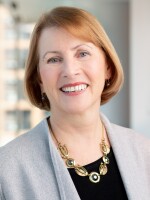Now that November's voting is over, elections officials are starting to get ready for the presidential primaries. Next year's primary schedule is earlier and more compressed than ever, and officials already face a number of challenges.
In Bergen County, N.J., for example, the Board of Elections will start Wednesday morning to recruit people to work at the polls for that state's Feb. 5 primary. The county has to train and recruit at least 2,500 people for every election, and that process takes time.
Board Chairman Peter Incardone says most people have no clue what's involved in getting ready for an election. It's like a wedding — months of careful preparation for a brief but important event.
"The general public does not see that. They just walk into a polling booth. They sign in, they go into the booth [and] in two minutes they're out," Incardone said. "It takes us two months prior to an election to get an election implemented."
Incardone adds that he's not worried about finding enough workers — the county pays $200 a day.
But he is worried about what happens if it snows. Many of the poll workers are elderly or disabled. The state's presidential primary used to be held in June, when inclement weather wasn't a concern.
Wild West
Many states face similar challenges. In their effort to be at the front of the nominating pack, more than half the states will vote by the first week in February. That means a lot of deadlines have been pushed up, even into December.
In Bergen County, for example, absentee ballots have to be mailed out at least 40 days prior to the election — that's Dec. 27.
Superintendent of Elections Patty DiCostanzo says there is also a deadline for voters to declare if they want to change parties, which is 50 days before the election, or Dec. 17. Her workers have to scan that information into a computerized voter-registration database, along with any new registrations.
"Normally, in December and January, we're cleaning house, so to speak. We're now getting the house ready, plus preparing for another election," DiCostanzo said.
Florida's primary is even earlier — Jan. 29. Ion Sancho, elections supervisor for Leon County, notes that the state's voter registration deadline is 29 days before the election: New Year's Eve.
"That puts all of this work squarely in the Thanksgiving-Christmas holiday period," Sancho said. "And quite frankly, most Americans — and the people who work the polls — aren't really thinking about elections during Thanksgiving and Christmas."
Sancho added that it's not clear what the impact will be, although he knows it will mean more money for overtime and other expenses. His state, like others, is also having another primary later in the year for congressional, state and local races.
Sancho said the new schedule also means that many traditional polling sites — such as Elks lodges and churches — have already been booked. So he has to find alternate sites.
"It's a matter of contacting facilities, looking at traffic patterns, looking at parking, looking at handicapped accessibility facilities," Sancho said. "All of these things have to be factored in. It's just not a matter of changing the day."
Doug Lewis of the nonprofit Election Center, which advises state and local election officials, likens the current primary rush to the Wild West, with everyone making up rules as they go along.
"This is what happens when candidates and campaigns and legislatures don't really take into consideration the whole process," Lewis said. "That's kind of antithetical to the way we do elections in America. We do a lot of planning."
Public Scrutiny
But there doesn't seem to be all that much sympathy for election officials, in part because they usually carry it off, no matter what the demands.
And the demands have been mounting since the 2000 presidential elections — as has public scrutiny.
Many states are in the process of changing their voting equipment as concerns are raised about the reliability of electronic voting. California has ordered 23 of its counties to replace their touchscreen voting machines with paper-based systems by that state's Feb. 5 primary, which has officials rushing to find new equipment.
Los Angeles County elections chief Conny McCormack said she might also have to cut out early primary voting to comply with the new state rules.
"It's all very confusing, and confusion never adds to a well-run election," she says. "So I think this is the anxiety that election officials are feeling right now."
It could also undermine voter confidence, although most election officials think the primaries should go off without too many glitches.
Lewis notes that one good thing — and he's reluctant to call it that — is that voter turnout for primaries is usually pretty low and that should reduce some of the pressure.
Copyright 2022 NPR. To see more, visit https://www.npr.org. 9(MDAzMjM2NDYzMDEyMzc1Njk5NjAxNzY3OQ001))






